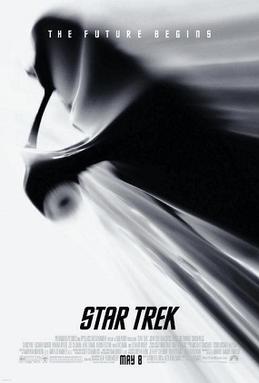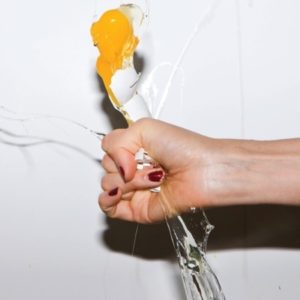 A recent study by royalties body PRS has found that the increased distribution of music by file sharing sites has only helped to make the most popular acts more popular!
A recent study by royalties body PRS has found that the increased distribution of music by file sharing sites has only helped to make the most popular acts more popular!'File-sharing only makes big acts bigger, study shows'
'Pirated pop keeps stars popular'
This wasn't how it was supposed to be was it?! This was supposed to be the revolution that all music lovers had been waiting for. It most certainly wasn't intended to make Coldplay more popular than...oh I don't know, oxygen?!
Sites like 'MySpace' allowed such acts as Lilly Allen and the Arctic Monkeys to amass large fan bases with no more resource than a single laptop and good old fashioned word of mouth.
"Hurrah" we cried as we well and truly stuck one to the record labels. The same labels of course, who would immediately snap up these acts, now assured of their potential for shifting units.
Despite this cynicism though and the fact 'Napster' may have been closed down along with the dubious 'Pirate Bay' more recently, these relatively new developments have at least forced the record companies to find alternate ways of distributing music. This has indirectly given rise to excellent sites such as 'Last FM' and 'Spotify' where streamed music can be heard for free!
 The Libertines were perhaps the first to harness the web in this way, giving access to unreleased tracks via the Internet for free and encouraging the distribution of demos and bootlegs with veritable glee.
The Libertines were perhaps the first to harness the web in this way, giving access to unreleased tracks via the Internet for free and encouraging the distribution of demos and bootlegs with veritable glee.It was Radiohead though who took this one step further, allowing fans to pay as much or as little as they liked for album 'In Rainbows', thus bypassing a record company altogether and hosting the music files for download on an independent website.
There are problems with this kind of 'giveaway' however. Radiohead were in the fortunate position of being an established act, having written some of the most heralded albums of our age and can more than afford to make such artistic statements.
Up and coming artists, struggling hard to establish themselves above the general dirge of this or that scene, don't have the luxury of releasing music for free. They need all the money they can get, often, no doubt, working numerous jobs to make ends meet and keep the bandwagon rolling.
There's a comparable situation in the world of scholarly publishing as it happens; one I'm party to in my work on technical journals. Academics and researchers in Universities and at Learned Institutions worldwide are championing 'open access' publishing whereby their research papers are made accessible freely to the scientific community rather than through the subscription seeking journal titles as was the past norm.
 Academics argue, understandably, that scientific research shouldn't be restricted by these models, that making it freely accessible encourages discussion, visibility and further research.
Academics argue, understandably, that scientific research shouldn't be restricted by these models, that making it freely accessible encourages discussion, visibility and further research. Fair enough, you may think, an admirable cause. Consider however, the smaller, independent publishers (such as my employer the Institute of Marine Engineering, Science & Technology) not blessed with the funding of these higher education institutions. How can they maintain their business whilst supplying access to journal titles for free?
One of the more favoured models for open access is to charge the author for publishing their material, thus subsidising the free access to the paper. Again this may seem reasonable, but what of authors in developing countries, who may not be able to afford publishing costs enforced by developed world publishing groups, or the independent researcher not supported by an academic faculty and forced to fund themselves?
Would we want to exclude this type of author and restrict the amount of 'grey' literature produced in niche areas of study? Yes, we may have free access to the 'stars' of academia but we dilute diversity and restrict opportunity. Amongst other things, the most popular authors, will inevitably get more popular.
Is this what's happening in the music world? With music files shared freely and streaming services available widely, we now have access to more and more music than ever before, diversity therefore isn't being compromised. This new world certainly allows the 'grey' music on the fringes of our public conscience to find a place but clearly this isn't making much of a difference to its sales?
 In the current climate, we no longer rely on traditional barometers such as 'Top of the Pops' or even a guru figure like John Peel. As a consequence there's no longer a filter in place to sort the wheat from the chaff. We have to suffer more and more utter pap in the process. I wonder, as a result, whether this actually affords us too much choice. The majority overloaded, simply opt out, preferring to stick with old stalwarts.
In the current climate, we no longer rely on traditional barometers such as 'Top of the Pops' or even a guru figure like John Peel. As a consequence there's no longer a filter in place to sort the wheat from the chaff. We have to suffer more and more utter pap in the process. I wonder, as a result, whether this actually affords us too much choice. The majority overloaded, simply opt out, preferring to stick with old stalwarts. In 'All is Vanity, from the recently released Manic Street Preachers album 'Journal for Plague Lovers', James Dean Bradfield sings, "I would prefer no choice. One bread, one milk, one food." Nicky Wire speaking in a recent NME interview explains...
"And I mean, that still resonates with us so deeply today. The idea that there's just so much choice now, that when we apply that to music, people think it's great that there's so much music, and that's so obviously not the case because so much of it is utter drivel. And you know, too much choice in music has led to mediocrity. And I think it's that kind of idea that Richey [lyricist] liked experts. He liked people who he thought were thoroughly researched and immersed in each particular subject. And we're still like that now."
So there you have it. Whether we like it or not, we need the institutionalised means of accessing our music, our research literature, our politics even. Yes, there's a balance to strike, but ironically and subconsciously, we'd all like to be told what we think. If we didn't, opinion columnists, reviewers and art critics would be out of a job and where would that leave us?
Quite possibly we'd have to suffer endless repeats of U2 'staples' festering across the air waves, all because we wouldn't know where to start nor finish; we'd all accept defeat; worse still, we'd accept the general perception that U2 are indeed 'the greatest ever band'. Let us hope we never see the day.


